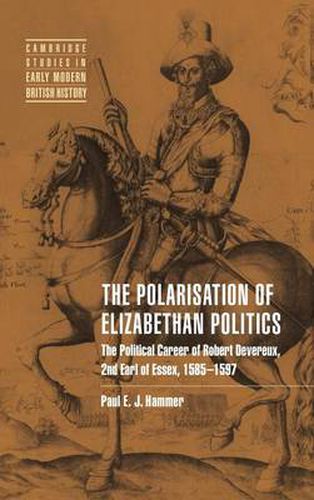Readings Newsletter
Become a Readings Member to make your shopping experience even easier.
Sign in or sign up for free!
You’re not far away from qualifying for FREE standard shipping within Australia
You’ve qualified for FREE standard shipping within Australia
The cart is loading…






The final decades of the reign of Elizabeth I were marked by the meteoric career of her last great favourite, Robert Devereux, 2nd Earl of Essex (1565-1601), and the outbreak of bitter political divisions at Court and across the realm. This revisionist study challenges the traditional ‘romantic’ image of Essex as a military incompetent and political dabbler. Studying his career between his arrival at court in 1585 and his appointment as earl marshal at the end of 1597, the book casts Essex in a new light and re-examines his role in the outbreak of factionalism in Elizabethan politics. Using an unparalleled range of manuscript and printed sources it explores the forces which drove Essex’s career, why true political success remained frustratingly beyond his grasp, and how his efforts to achieve this success helped to fuel the polarisation of Elizabethan politics.
$9.00 standard shipping within Australia
FREE standard shipping within Australia for orders over $100.00
Express & International shipping calculated at checkout
The final decades of the reign of Elizabeth I were marked by the meteoric career of her last great favourite, Robert Devereux, 2nd Earl of Essex (1565-1601), and the outbreak of bitter political divisions at Court and across the realm. This revisionist study challenges the traditional ‘romantic’ image of Essex as a military incompetent and political dabbler. Studying his career between his arrival at court in 1585 and his appointment as earl marshal at the end of 1597, the book casts Essex in a new light and re-examines his role in the outbreak of factionalism in Elizabethan politics. Using an unparalleled range of manuscript and printed sources it explores the forces which drove Essex’s career, why true political success remained frustratingly beyond his grasp, and how his efforts to achieve this success helped to fuel the polarisation of Elizabethan politics.